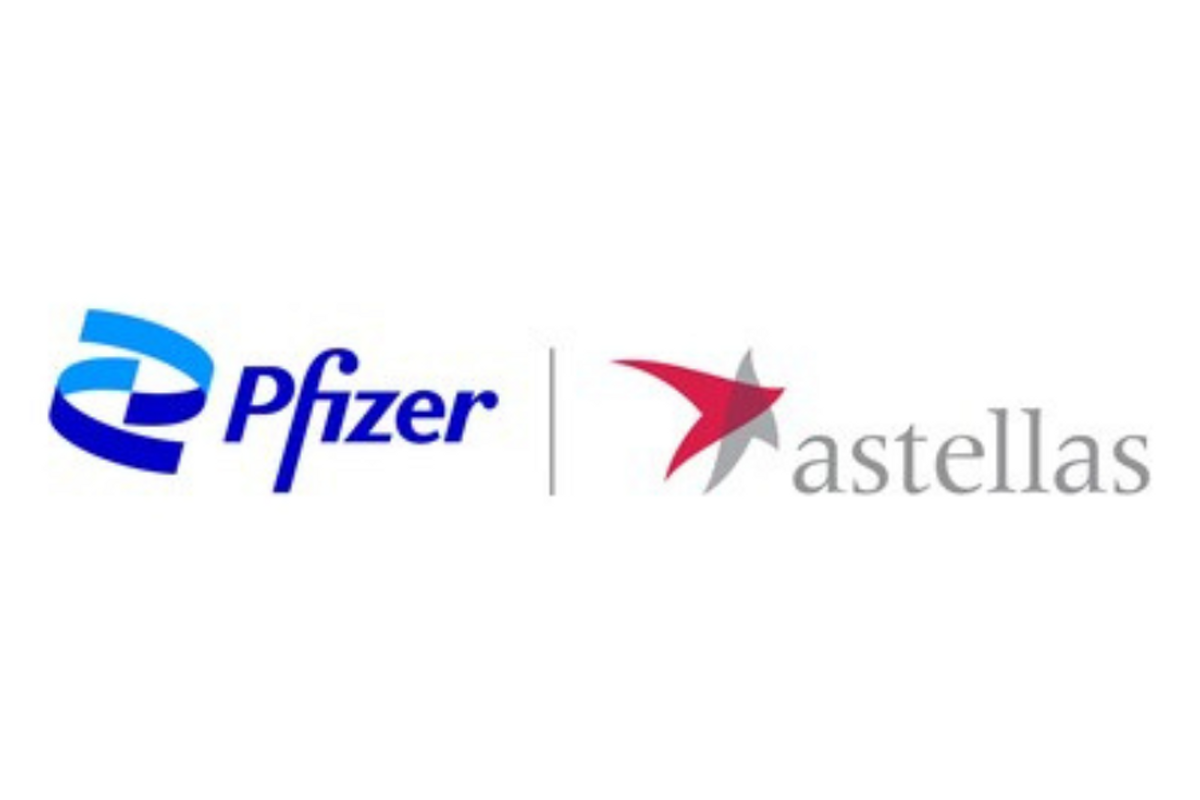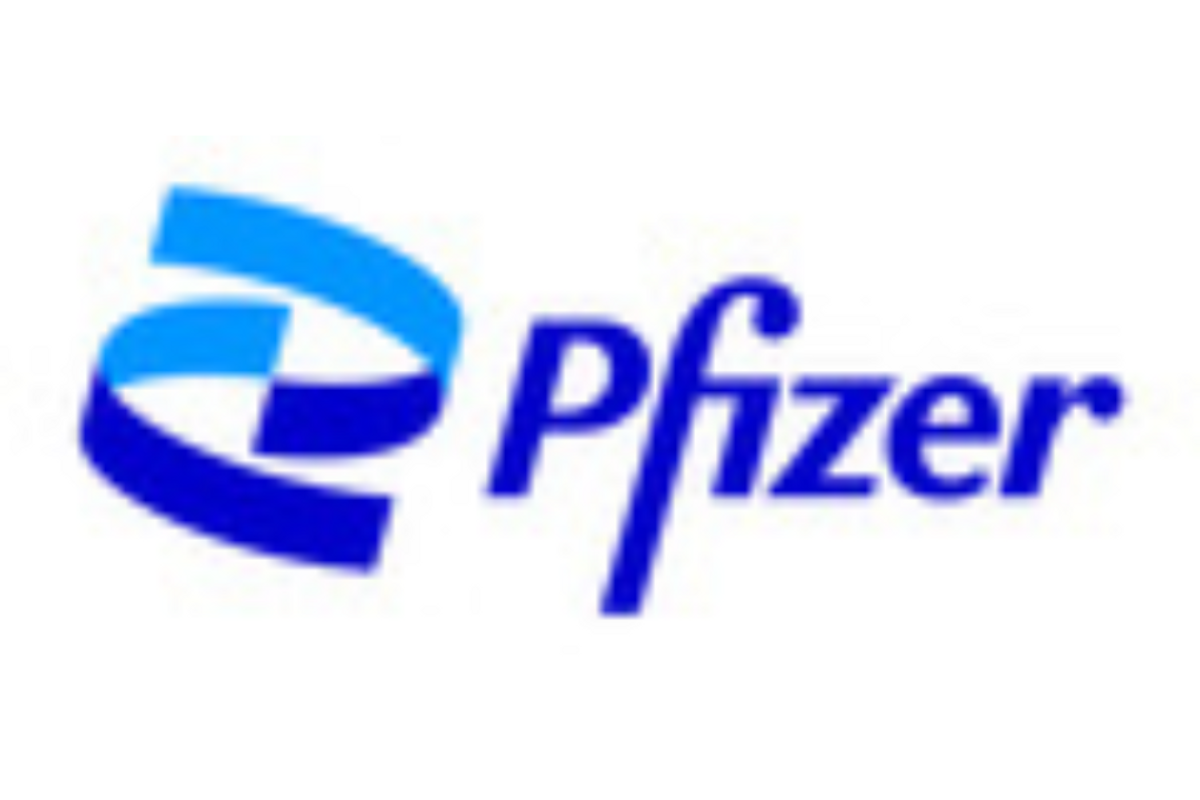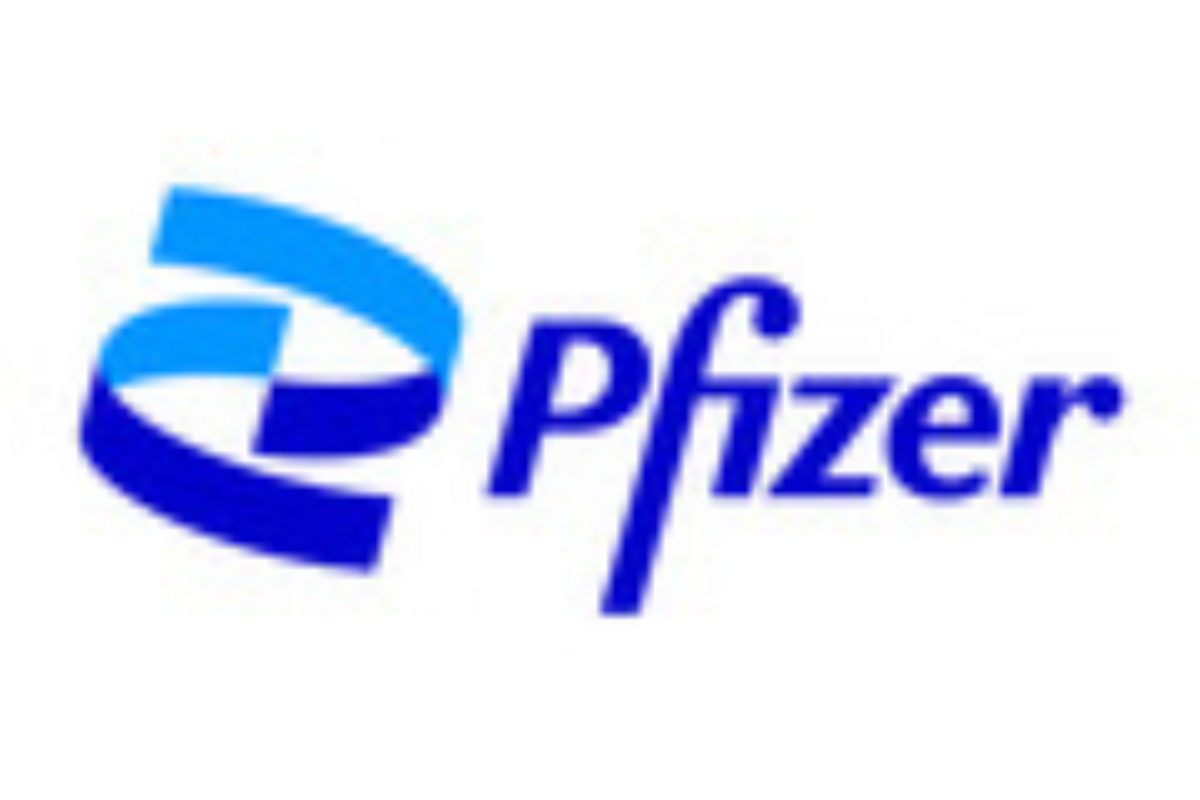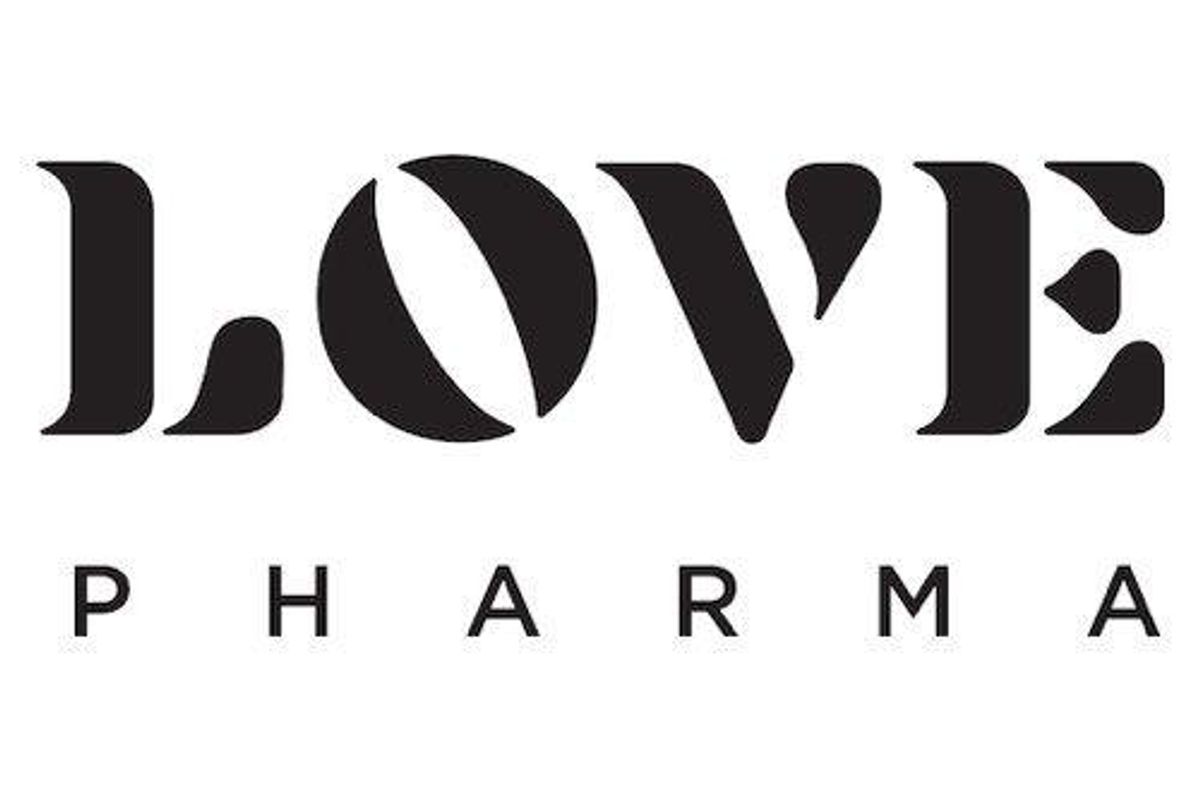
Data from Phase 3 EMBARK trial to be presented as a plenary session during the 2023 American Urological Association Annual Meeting
Results show the potential for XTANDI to add to the standard of care in prostate cancer, if approved
Astellas Pharma Inc. (TSE: 4503, President and CEO: Naoki Okamura "Astellas") and Pfizer Inc. (NYSE: PFE) announced today that XTANDI ® (enzalutamide) plus leuprolide significantly reduced the risk of metastasis or death by 58% versus placebo plus leuprolide (Hazard Ratio [HR]: 0.42; 95% Confidence Interval [CI], 0.30–0.61; P
The overall safety profile was consistent with the known safety profile of each of the medicines. The most common adverse events in those treated with XTANDI plus leuprolide were fatigue, hot flush, and arthralgia and in those treated with XTANDI monotherapy were fatigue, gynecomastia, and arthralgia.
"There are patients with localized prostate cancer who undergo prostatectomy or radiation therapy in an attempt to cure their disease, but, unfortunately, some patients will develop BCR," said Neal Shore , M.D., F.A.C.S., U.S. Chief Medical Officer of Urology and Surgical Oncology, GenesisCare, Director, Carolina Urologic Research Center, and Primary Investigator for the EMBARK study. "Importantly, some patients with BCR are at very high risk for developing metastatic disease, which can lead to a cascade of therapeutic interventions. The clinical goal of BCR therapy is to delay cancer progression and avoid metastatic disease. The MFS results from the EMBARK study demonstrate that this intervention with XTANDI plus leuprolide was statistically significant for patients with high-risk BCR."
"The EMBARK study is a Phase 3 trial exploring the potential of enzalutamide in patients with non-metastatic hormone-sensitive prostate cancer with high-risk BCR," said Stephen J. Freedland , M.D., Director of the Center for Integrated Research in Cancer and Lifestyle and the Warschaw Robertson Law Families Chair in Prostate Cancer at Cedars-Sinai Cancer and Co-Principal Investigator of the Clinical Trial. "If approved, we hope to bring a new option to men earlier in the course of their disease."
Consistent with the study's primary endpoint, statistically significant and clinically meaningful improvements were also observed in the trial's key secondary endpoints in both the XTANDI combination and monotherapy arms. Specifically, the XTANDI monotherapy arm demonstrated that treatment with XTANDI reduced the risk of metastasis or death by 37% versus leuprolide plus placebo (HR: 0.63; 95% CI, 0.46–0.87; P=0.0049), meeting its MFS endpoint. Treatment with XTANDI plus leuprolide and XTANDI monotherapy reduced the risk of PSA progression by 93% (HR: 0.07; 95% CI, 0.03–0.14; P
A positive trend in the key secondary endpoint of overall survival (OS) was also observed in the XTANDI combination arm at the time of the analysis, but these data were not yet mature. Patients in the trial will be followed for a subsequent final OS analysis.
Detailed results from the trial will be submitted for peer-reviewed publication. Additionally, the EMBARK data will be discussed with regulatory authorities, including the U.S. Food and Drug Administration (FDA), to support a potential regulatory submission for XTANDI in this indication in 2023.
About EMBARK
The Astellas- and Pfizer-led Phase 3, randomized, double-blind, placebo-controlled, multi-national trial enrolled 1,068 patients with non-metastatic hormone-sensitive prostate cancer (nmHSPC; also known as non-metastatic castration-sensitive prostate cancer or nmCSPC) with high-risk biochemical recurrence (BCR) at sites in the United States , Canada , Europe , South America and the Asia-Pacific region. Patients who were considered to experience high-risk BCR had a prostate-specific antigen doubling time (PSA-DT) ≤ 9 months; serum testosterone ≥ 150 ng/dL (5.2 nmol/L); and screening PSA by the central laboratory ≥ 1 ng/mL if they had a radical prostatectomy (with or without radiotherapy) as primary treatment for prostate cancer, or at least 2 ng/mL above the nadir if they had radiotherapy only as primary treatment for prostate cancer. Patients in the EMBARK trial were randomized to receive enzalutamide 160 mg daily plus leuprolide (n=355), enzalutamide 160 mg as a monotherapy (n=355), or placebo plus leuprolide (n=358). Leuprolide 22.5 mg was administered every 12 weeks.
The primary endpoint of the trial was metastasis-free survival (MFS) for enzalutamide plus leuprolide versus placebo plus leuprolide. MFS is defined as the duration of time in months between randomization and the earliest objective evidence of radiographic progression by central imaging or death. For more information on the EMBARK trial ( NCT02319837 ) go to www.clinicaltrials.gov .
XTANDI, either in combination with leuprolide or as a monotherapy, has not been approved by any regulatory agency for the treatment of patients with nmHSPC with high-risk BCR.
About Non-Metastatic Hormone-Sensitive Prostate Cancer with High-Risk Biochemical Recurrence
In non-metastatic hormone- (or castration-) sensitive prostate cancer (nmHSPC or nmCSPC), no evidence of the cancer spreading to distant parts of the body (metastases) is detectable with conventional radiological methods (CT/MRI), and the cancer still responds to medical or surgical treatment designed to lower testosterone levels. 1,2 Of men who have undergone definitive prostate cancer treatment, including radical prostatectomy, radiotherapy, or both, an estimated 20-40% will experience a biochemical recurrence (BCR) within 10 years. 3 About 9 out of 10 men with high-risk BCR will develop metastatic disease, and 1 in 3 will die as a result of the recurrence. 4 The EMBARK trial focused on men with high-risk BCR. Per the EMBARK protocol, patients with nmHSPC and high-risk BCR are those initially treated by radical prostatectomy or radiotherapy, or both, with a prostate-specific antigen doubling time (PSA-DT) ≤ 9 months. High-risk BCR patients with a PSA-DT of ≤ 9 months have a higher risk of metastases and death. 5
About XTANDI ® (enzalutamide)
XTANDI (enzalutamide) is an androgen receptor signaling inhibitor. XTANDI has received regulatory approvals in one or more countries around the world for use in men with metastatic hormone-sensitive prostate cancer (mHSPC), metastatic castration-resistant prostate cancer (mCRPC), and non-metastatic castration-resistant prostate cancer (nmCRPC). XTANDI is currently approved for one or more of these indications in more than 100 countries, including in the United States , European Union and Japan . One million patients have been treated with XTANDI globally. 6
U.S. Important Safety Information
XTANDI (enzalutamide) is indicated in the U.S. for the treatment of patients with castration-resistant prostate cancer (CRPC) and metastatic castration-sensitive prostate cancer (mCSPC).
Warnings and Precautions
Seizure occurred in 0.5% of patients receiving XTANDI in seven randomized clinical trials. In a study of patients with predisposing factors for seizure, 2.2% of XTANDI-treated patients experienced a seizure. It is unknown whether anti-epileptic medications will prevent seizures with XTANDI. Patients in the study had one or more of the following predisposing factors: use of medications that may lower the seizure threshold, history of traumatic brain or head injury, history of cerebrovascular accident or transient ischemic attack, and Alzheimer's disease, meningioma, or leptomeningeal disease from prostate cancer, unexplained loss of consciousness within the last 12 months, history of seizure, presence of a space-occupying lesion of the brain, history of arteriovenous malformation, or history of brain infection. Advise patients of the risk of developing a seizure while taking XTANDI and of engaging in any activity where sudden loss of consciousness could cause serious harm to themselves or others. Permanently discontinue XTANDI in patients who develop a seizure during treatment.
Posterior Reversible Encephalopathy Syndrome (PRES): There have been reports of PRES in patients receiving XTANDI. PRES is a neurological disorder that can present with rapidly evolving symptoms including seizure, headache, lethargy, confusion, blindness, and other visual and neurological disturbances, with or without associated hypertension. A diagnosis of PRES requires confirmation by brain imaging, preferably MRI. Discontinue XTANDI in patients who develop PRES.
Hypersensitivity: Reactions, including edema of the face (0.5%), tongue (0.1%), or lip (0.1%) have been observed with XTANDI in seven randomized clinical trials. Pharyngeal edema has been reported in post-marketing cases. Advise patients who experience any symptoms of hypersensitivity to temporarily discontinue XTANDI and promptly seek medical care. Permanently discontinue XTANDI for serious hypersensitivity reactions.
Ischemic Heart Disease: In the combined data of four randomized, placebo-controlled clinical studies, ischemic heart disease occurred more commonly in patients on the XTANDI arm compared to patients on the placebo arm (2.9% vs 1.3%). Grade 3-4 ischemic events occurred in 1.4% of patients on XTANDI versus 0.7% on placebo. Ischemic events led to death in 0.4% of patients on XTANDI compared to 0.1% on placebo. Monitor for signs and symptoms of ischemic heart disease. Optimize management of cardiovascular risk factors, such as hypertension, diabetes, or dyslipidemia. Discontinue XTANDI for Grade 3-4 ischemic heart disease.
Falls and Fractures occurred in patients receiving XTANDI. Evaluate patients for fracture and fall risk. Monitor and manage patients at risk for fractures according to established treatment guidelines and consider use of bone-targeted agents. In the combined data of four randomized, placebo-controlled clinical studies, falls occurred in 11% of patients treated with XTANDI compared to 4% of patients treated with placebo. Fractures occurred in 10% of patients treated with XTANDI and in 4% of patients treated with placebo.
Embryo-Fetal Toxicity: The safety and efficacy of XTANDI have not been established in females. XTANDI can cause fetal harm and loss of pregnancy when administered to a pregnant female. Advise males with female partners of reproductive potential to use effective contraception during treatment with XTANDI and for 3 months after the last dose of XTANDI.
Adverse Reactions (ARs): In the data from the four randomized placebo-controlled trials, the most common ARs (≥ 10%) that occurred more frequently (≥ 2% over placebo) in XTANDI-treated patients were asthenia/fatigue, back pain, hot flush, constipation, arthralgia, decreased appetite, diarrhea, and hypertension. In the bicalutamide-controlled study, the most common ARs (≥ 10%) reported in XTANDI-treated patients were asthenia/fatigue, back pain, musculoskeletal pain, hot flush, hypertension, nausea, constipation, diarrhea, upper respiratory tract infection, and weight loss.
In AFFIRM, the placebo-controlled study of metastatic CRPC (mCRPC) patients who previously received docetaxel, Grade 3 and higher ARs were reported among 47% of XTANDI-treated patients. Discontinuations due to adverse events (AEs) were reported for 16% of XTANDI-treated patients. In PREVAIL, the placebo-controlled study of chemotherapy-naive mCRPC patients, Grade 3- 4 ARs were reported in 44% of XTANDI patients and 37% of placebo patients. Discontinuations due to AEs were reported for 6% of XTANDI treated patients. In TERRAIN, the bicalutamide-controlled study of chemotherapy-naive mCRPC patients, Grade 3- 4 ARs were reported in 39% of XTANDI patients and 38% of bicalutamide patients. Discontinuations with an AE as the primary reason were reported for 8% of XTANDI patients and 6% of bicalutamide patients.
In PROSPER, the placebo-controlled study of non-metastatic CRPC (nmCRPC) patients, Grade 3 or higher ARs were reported in 31% of XTANDI patients and 23% of placebo patients. Discontinuations with an AE as the primary reason were reported for 9% of XTANDI patients and 6% of placebo patients.
In ARCHES, the placebo-controlled study of metastatic CSPC (mCSPC) patients, Grade 3 or higher AEs were reported in 24% of XTANDI-treated patients. Permanent discontinuation due to AEs as the primary reason was reported in 5% of XTANDI patients and 4% of placebo patients.
Lab Abnormalities: Lab abnormalities that occurred in ≥ 5% of patients, and more frequently (> 2%) in the XTANDI arm compared to placebo in the pooled, randomized, placebo-controlled studies are neutrophil count decreased, white blood cell decreased, hyperglycemia, hypermagnesemia, hyponatremia, and hypercalcemia.
Hypertension: In the combined data from four randomized placebo-controlled clinical trials, hypertension was reported in 12% of XTANDI patients and 5% of placebo patients. Hypertension led to study discontinuation in
Drug Interactions
Effect of Other Drugs on XTANDI Avoid strong CYP2C8 inhibitors, as they can increase the plasma exposure to XTANDI. If co-administration is necessary, reduce the dose of XTANDI. Avoid strong CYP3A4 inducers as they can decrease the plasma exposure to XTANDI. If coadministration is necessary, increase the dose of XTANDI. Effect of XTANDI on Other Drugs Avoid CYP3A4, CYP2C9, and CYP2C19 substrates with a narrow therapeutic index, as XTANDI may decrease the plasma exposures of these drugs. If XTANDI is co-administered with warfarin (CYP2C9 substrate), conduct additional INR monitoring.
Please see Full Prescribing Information for additional safety information.
About Astellas
Astellas Pharma Inc. is a pharmaceutical company conducting business in more than 70 countries around the world. We are promoting the Focus Area Approach that is designed to identify opportunities for the continuous creation of new drugs to address diseases with high unmet medical needs by focusing on Biology and Modality. Furthermore, we are also looking beyond our foundational Rx focus to create Rx+ ® healthcare solutions that combine our expertise and knowledge with cutting-edge technology in different fields of external partners. Through these efforts, Astellas stands on the forefront of healthcare change to turn innovative science into VALUE for patients. For more information, please visit our website at https://www.astellas.com/en .
About Pfizer Oncology
At Pfizer Oncology, we are committed to advancing medicines wherever we believe we can make a meaningful difference in the lives of people living with cancer. Today, we have an industry-leading portfolio of 24 approved innovative cancer medicines and biosimilars across more than 30 indications, including breast, genitourinary, colorectal, blood and lung cancers, as well as melanoma.
About the Pfizer/Astellas Collaboration
In October 2009 , Medivation, Inc., which is now part of Pfizer (NYSE:PFE), and Astellas (TSE: 4503) entered into a commercial agreement to jointly develop and commercialize XTANDI ® (enzalutamide) in the United States , while Astellas has responsibility for manufacturing and all additional regulatory filings globally, as well as commercializing the product outside the United States . Pfizer receives alliance revenues as a share of U.S. profits and receives royalties on sales outside the U.S.
Astellas Forward-Looking Statement
In this press release, statements made with respect to current plans, estimates, strategies and beliefs and other statements that are not historical facts are forward-looking statements about the future performance of Astellas. These statements are based on management's current assumptions and beliefs in light of the information currently available to it and involve known and unknown risks and uncertainties. A number of factors could cause actual results to differ materially from those discussed in the forward-looking statements. Such factors include, but are not limited to: (i) changes in general economic conditions and in laws and regulations, relating to pharmaceutical markets, (ii) currency exchange rate fluctuations, (iii) delays in new product launches, (iv) the inability of Astellas to market existing and new products effectively, (v) the inability of Astellas to continue to effectively research and develop products accepted by customers in highly competitive markets, and (vi) infringements of Astellas' intellectual property rights by third parties.
Information about pharmaceutical products (including products currently in development), which is included in this press release is not intended to constitute an advertisement or medical advice.
Pfizer Disclosure Notice
The information contained in this release is as of April 29, 2023 . Pfizer assumes no obligation to update forward-looking statements contained in this release as the result of new information or future events or developments.
This release contains forward-looking information about XTANDI ® (enzalutamide) and a potential new indication being evaluated for the treatment of men with non-metastatic hormone-sensitive prostate cancer with high-risk biochemical recurrence (BCR), including their potential benefits, that involves substantial risks and uncertainties that could cause actual results to differ materially from those expressed or implied by such statements. Risks and uncertainties include, among other things, uncertainties regarding the commercial success of XTANDI; the uncertainties inherent in research and development, including the ability to meet anticipated clinical endpoints, commencement and/or completion dates for clinical trials, regulatory submission dates, regulatory approval dates and/or launch dates, as well as the possibility of unfavorable new clinical data and further analyses of existing clinical data; whether the EMBARK trial will meet the secondary endpoint of overall survival; the risk that clinical trial data are subject to differing interpretations and assessments by regulatory authorities; whether regulatory authorities will be satisfied with the design of and results from the clinical studies; whether and when drug applications for the potential new indication for XTANDI or any other potential indications for XTANDI may be filed in any jurisdictions; whether and when regulatory authorities in any jurisdictions may approve any such applications, which will depend on a myriad of factors, including making a determination as to whether the product's benefits outweigh its known risks and determination of the product's efficacy and, if approved, whether XTANDI for any potential indication will be commercially successful; decisions by regulatory authorities impacting labeling, manufacturing processes, safety, and/or other matters that could affect the availability or commercial potential of XTANDI, including for the potential new indication; dependence on the efforts and funding by Astellas Pharma Inc. for the development, manufacturing and commercialization of XTANDI; uncertainties regarding the impact of COVID-19 on Pfizer's business, operations and financial results; and competitive developments.
A further description of risks and uncertainties can be found in Pfizer's Annual Report on Form 10-K for the fiscal year ended December 31, 2022 and in its subsequent reports on Form 10-Q, including in the sections thereof captioned "Risk Factors" and "Forward-Looking Information and Factors That May Affect Future Results", as well as in its subsequent reports on Form 8-K, all of which are filed with the U.S. Securities and Exchange Commission and available at www.sec.gov and www.pfizer.com .
1 Cancer.net. Prostate Cancer: Types of Treatment (12-2022). https://www.cancer.net/cancer-types/prostate-cancer/types-treatment . Accessed March 16, 2023 .
2 American Society of Clinical Oncology. ASCO Answers: Prostate Cancer (2021). https://www.cancer.net/sites/cancer.net/files/asco_answers_guide_prostate.pdf . Accessed March 16, 2023 .
3 Ward JF, Moul JW. Rising prostate-specific antigen after primary prostate cancer therapy. Nat Clin Pract Urol. 2005 Apr;2(4):174-82. doi: 10.1038/ncpuro0145. PMID: 16474760.
4 Antonarakis, Emmanuel S et al. "The natural history of metastatic progression in men with prostate-specific antigen recurrence after radical prostatectomy: long-term follow-up." BJU international vol. 109,1 (2012): 32-9. doi:10.1111/j.1464-410X.2011.10422.
5 Paller, Channing J et al. "Management of patients with biochemical recurrence after local therapy for prostate cancer." Hematology/oncology clinics of North America vol. 27,6 (2013): 1205-19, viii. doi:10.1016/j.hoc.2013.08.005
6 Data on file. Northbrook, IL : Astellas Inc.
![]() View original content to download multimedia: https://www.prnewswire.com/news-releases/xtandi-enzalutamide-plus-leuprolide-reduced-the-risk-of-metastasis-by-58-in-non-metastatic-hormone-sensitive-prostate-cancer-versus-placebo-plus-leuprolide-301811445.html
View original content to download multimedia: https://www.prnewswire.com/news-releases/xtandi-enzalutamide-plus-leuprolide-reduced-the-risk-of-metastasis-by-58-in-non-metastatic-hormone-sensitive-prostate-cancer-versus-placebo-plus-leuprolide-301811445.html
SOURCE Astellas Pharma Inc.; Pfizer Inc.





